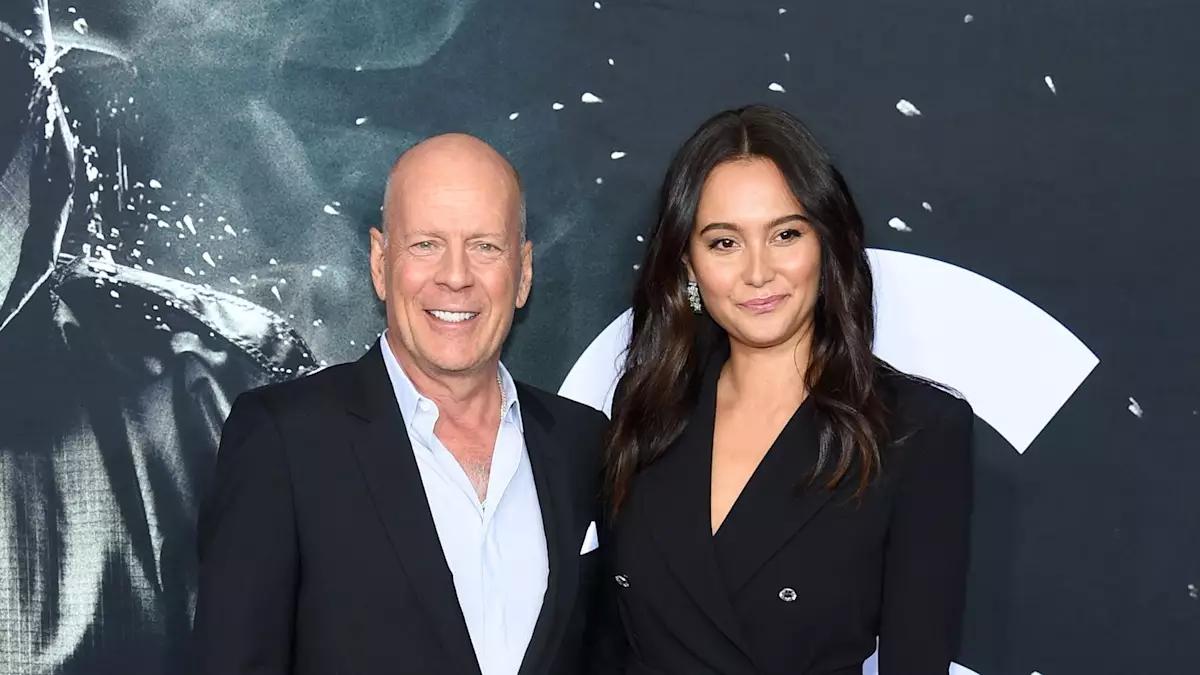In a world where the limelight often shines on celebrities and their accomplishments, it is crucial to recognize the unsung heroes who stand behind them—caregivers. Emma Heming Willis, wife to the acclaimed actor Bruce Willis, offers poignant insights into the often overlooked struggles of those who care for loved ones facing debilitating health issues. Following the tragic passing of legendary actor Gene Hackman and his wife, Betsy Arakawa, Emma felt compelled to voice an important narrative: caregivers need care too. Her heartfelt message sheds light on the emotional and physical toll that caregiving exacts, bringing to the forefront an often ignored aspect of health discussions.
Emma, who has unflinchingly assumed the role of caretaker since Bruce’s frontotemporal dementia diagnosis in 2022, emphasizes that caregivers are frequently seen as the pillars of strength, effortlessly managing every crisis. However, this perception is a misleading stereotype, one that fails to acknowledge their own vulnerabilities and needs. Emma’s own journey through caregiving showcases the immense burden it can be, affecting not just physical well-being but emotional stability as well.
Lessons from Loss
Emma’s reflections come in the wake of Gene Hackman’s passing, which has left many fans mourning the loss of a cinematic icon. However, the circumstances surrounding their deaths raise crucial questions about the fragility of life and the often unaddressed emotional labor involved in caregiving. Betsy’s death—attributed to hantavirus pulmonary syndrome—and Gene’s subsequent passing due to cardiovascular complications compounded by Alzheimer’s disease, signal the unpredictability and complexity of health issues. It serves as a sober reminder that life can change in the blink of an eye, and the emotional fallout can be profound for caregivers, who are left grappling with not just loss, but their own feelings of helplessness.
Emma’s words resonate deeply against this backdrop, urging society to shift dialogue toward supporting caregivers. “Caregivers need care too. Period. Full stop.” This phrase, simple yet emphatic, encapsulates the essence of her message—love and attention directed toward the caregivers is crucial for them to effectively support their loved ones.
The Misconception of the Caregiver’s Strength
One of the core elements of Emma’s message is the common misconception that caregivers have everything figured out. Society tends to romanticize the notion of the selfless caregiver, often neglecting their own emotional needs. Many caregivers suffer in silence, believing they should be invincible or need to project a facade of strength—this can lead to overwhelming feelings of isolation, inadequacy, and even burnout. Emma counters this misleading narrative by reminding us that caregivers are human too, laden with fears, doubts, and emotional turmoil.
This narrative is not limited to high-profile cases such as Bruce and Gene’s; it is a universal struggle faced by millions. The reality for many is discovering that, contrary to popular belief, asking for help is not a sign of failure, but rather an act of wisdom and self-preservation. Support networks, whether family, friends, or professional help, are essential in ensuring that caregivers don’t just exist, but thrive as they take on their demanding roles.
Community Support and Shared Experience
Emma’s experience is a testament to the importance of family support in times of crisis. Her blended family, including Bruce’s three daughters from his previous marriage to Demi Moore, rally around her, providing a much-needed reservoir of strength. Their collective presence reinforces the idea that caregiving should never be a solitary journey.
Emma’s narrative is not simply a call for individual caregivers to step up; rather, it’s a clarion call for community solidarity. Families should regularly engage in open discussions about mental health and the emotional weight carried by caregivers. When the burden is shared, it helps not just the caregiver but also the one receiving care. The reciprocity of love, support, and understanding is crucial in navigating the often turbulent waters of caregiving.
Ultimately, beyond celebrating individual acts of kindness, it is imperative to implement systemic changes that prioritize mental health, accessibility to caregiver resources, and robust community support networks. In doing so, we might just start to appreciate the labor of love that caregiving truly is, ensuring that no one navigates this road alone.

